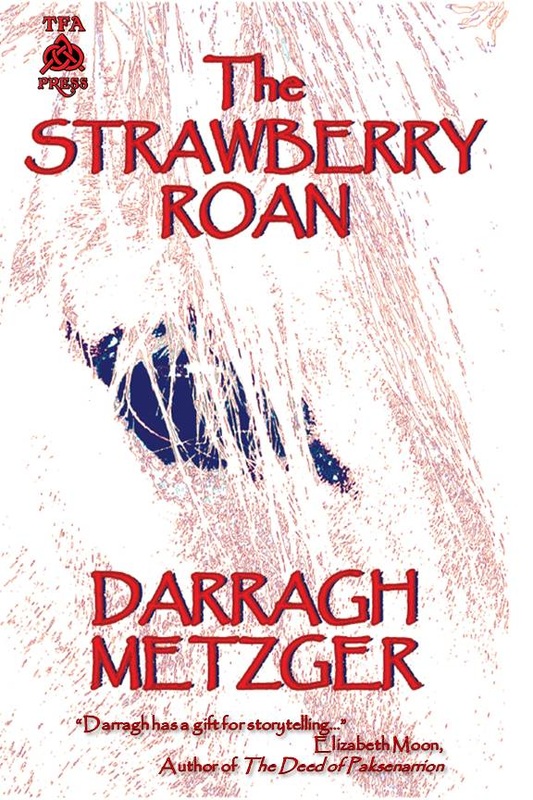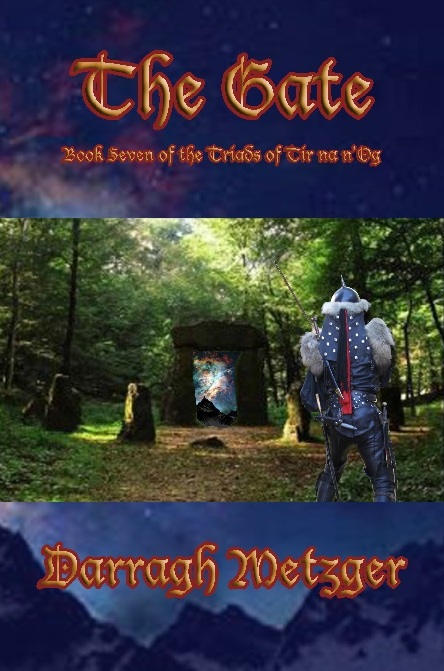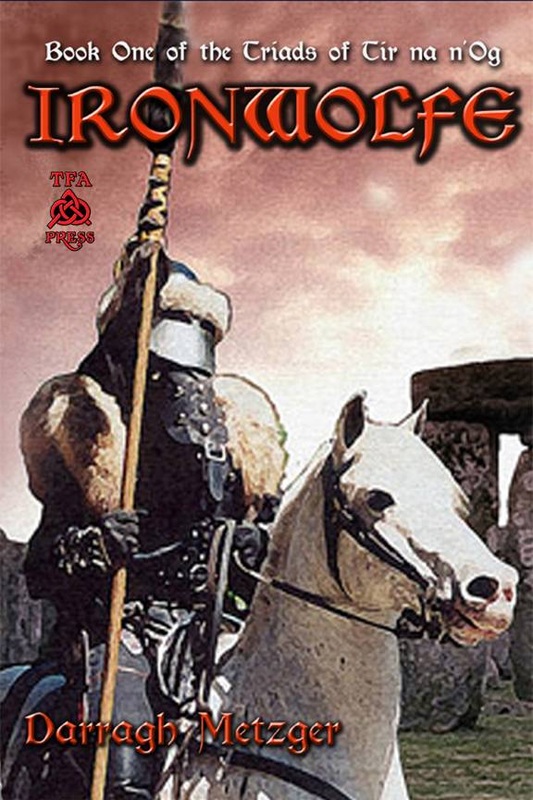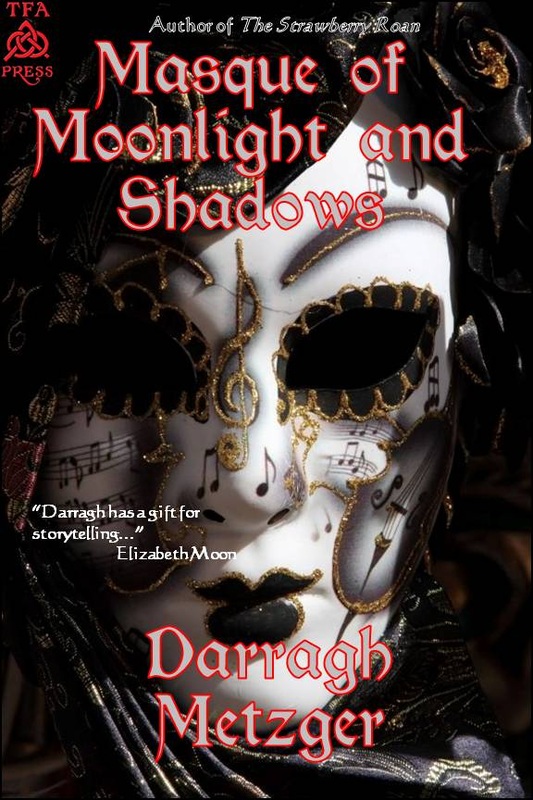I didn't write my first non-fiction book without a lot of struggling, I know; artists are supposed to suffer. But for some reason, I didn't expect the fight to go on for nearly 10 years.
It all started on my living room floor, when I was a little kid.
Every kid thinks their parents are heroes. It's a little odd, and more than a little wonderful, when you grow up and discover that they really are.
Mom and Dad both worked for Alaska Airlines; Dad as a pilot, then Chief Pilot, then VP of Operations, Mom as a Stewardess (that's what they called them back then) until she became pregnant with me. When I was a child, I used to love to sit on the living room floor when the other Alaska Airlines employees came over, and listen to them all swap stories. In those days, Alaska Airlines was like a family; all the employees knew each other, their spouses were all friends, their kids all went to school together, and a lot of them hung out together even when they weren't at work.
I don't remember how many times I heard stories about Operation Magic Carpet, although I don't recall hearing anyone refer to it that way. It was just, "Remember that time in Tel Aviv..." or "We were coming in over Aden..." or "...about the third trip in the C-46...." Some fabulous, wild adventure that would have everyone in the room laughing -- though I'm sure a lot of it wasn't funny at the time -- followed by some grand finale, such as "...coasting on fumes into Cyprus..." or wherever.
I remember my dad telling the story when he and some of the other pilots first arrived in Aden, the overworked British officer, whom Dad thought was in charge of the refugee camp, warning him and the other pilots about the dangers of landing anywhere in Arab territory. What would happen to them if they did – and, worse yet, what would happen to their passengers. The wording was slightly different each time, but the gist was always the same: "If you are shot down, try to land in the Red Sea, preferably near a British or European ship. If you land anywhere in any Arab territory, you and your crew may survive if their military finds you first. But your passengers will not. If any of the tribesmen reach you first, neither you nor your crew nor your passengers will be spared."
Dad was a sucker for children, and the Yemenite children left a deep impression upon him, especially their big, dark eyes that followed him whenever he walked past. He asked that officer, "Even the children?"
The officer looked at him and said, "I assure you, an Arab will look at those little Jewish children and will only see something that will grow up to be a big Jew."
I remember Dad shaking his head over the thought that anyone could murder a bunch of helpless, adorable children four and five years old. He never forgot them, and spoke of them often.
Our living room is where I first heard the story of how Bob Maguire managed to keep his Yemenite passengers safe during a forced landing in Egypt, by radioing ahead and telling the airport that he had smallpox aboard.
It's also where I heard Larry Roger talk about being shot at during approach into Tel Aviv, with his light-hearted, bone-dry delivery..."It certainly gets your attention..."
I never tired of Mom's stories of her flights, especially out of Shanghai, ferrying Jewish refugees from China to Israel by way of Hong Kong and Bombay; of the way the overloaded DC-4 "staggered into the air" while the crew held their breath, gripped their seats, and tried to pretend everything was okay for the sake of their passengers. Or of the nice little old man who stopped to pat her hand when they disembarked at last in Tel Aviv, and told her she was "the kind of girl a man would marry even without a dowry."
Or of how the last flight from Shanghai took off to the sound of gunfire coming from the end of the runway, as the Communist forces closed in.
That period of time, which included my parents' wedding in Asmara, was all part of the Mom and Dad Mythology; stories that are part of the background and fabric of my life. And as we grew up, my brothers and I stopped really paying attention to it. We took it for granted.
And then, in 2007, KTUU TV in Anchorage did an interview with Dad about his role in Operation Magic Carpet. It was shown on TV and printed in the papers in Alaska. I showed copies of the article around to my friends at work and found out that no one I knew had ever heard of Operation Magic Carpet.
In November the same year, Mom and Dad were invited to New York as guests of the Yemenite Jewish Federation of America at a big Gala in celebration of the airlift. They came back with a lot of new friends, great memories, and an award that now sits in my living room. By that time I'd started doing a bit of background research, and learned that On Wings of Eagles, which was the official name for Operation Magic Carpet, was one of those forgotten, overlooked pieces of history. So I wasn't surprised when no one I told about Mom and Dad's award had ever heard of it. But the idea occurred to me, at that point, that this was something I could actually do something about. The first seeds of what eventually became my first non-fiction book, Alaska Over Israel, were planted.
I'm a fiction writer, and the idea of taking on a non-fiction project of such historical significance daunted me more than a little. But after speaking to a few writer friends and contacting a couple of editors who were extremely interested and encouraging, I realized it was something that I not only could do, but that I had to. I started doing research, wrote letters, made queries to try to find other surviving crew besides Mom and Dad, and, hopefully, some surviving passengers I could interview. I found additional sources and gathered a lot of good information.
Unfortunately, Dad's health went south in mid-2008, and he and my mom died in 2009. Their ongoing battles with illnesses and the health care system ate up my opportunities to work on this with them, and though I tried, I found myself unable to continue with it after their deaths. I put my by-then-bulging files away to wait until the loss was less fresh and went to work on other commitments.
Then in 2013, I was asked to speak at the opening of the Operation Magic Carpet exhibit at the Alaska Jewish Heritage Museum in Anchorage. Although I thought one of my brothers should have been asked instead of me, I said, "yes" and dug out my notes.
Reading through them brought it all back; the magic of the story, the era, caught me up again and swept me away, reviving a lot of the ol' Mom and Dad Mythology. I'd read a story and remember hearing some version of it while sitting there on the living room floor all those years ago. I opened my computer and finally started writing again, determined, this time, to finish.
Alaska Over Israel: Operation Magic Carpet, the Men and Women Who Made it Fly, and the Little Airline That Could isn't the book I originally planned on writing. There is so much I would do differently, if I could have. So much I felt I fell short of the mark on. Don't get me wrong; it's a darned good read, if I do say so myself. But still.
But when all is said and done, Alaska Over Israel is not just a story about Warren and Marian Metzger, Sam Silver, or Alaska Airlines, but about all the people who took part in it. Not just the men and women who flew the overworked, overcrowded C-46s and DC-4s from Shanghai and Aden, over territory where an emergency landing meant probable death.
This is also the story of the people who fled from Germany to China, or walked across hundreds of miles of trackless desert and freezing mountain passes on the strength of a whisper and a dream, to ride the Wings of Eagles to a new life in the Promised Land.
It's a piece of history that must not, cannot-- and will not--be forgotten.
It all started on my living room floor, when I was a little kid.
Every kid thinks their parents are heroes. It's a little odd, and more than a little wonderful, when you grow up and discover that they really are.
Mom and Dad both worked for Alaska Airlines; Dad as a pilot, then Chief Pilot, then VP of Operations, Mom as a Stewardess (that's what they called them back then) until she became pregnant with me. When I was a child, I used to love to sit on the living room floor when the other Alaska Airlines employees came over, and listen to them all swap stories. In those days, Alaska Airlines was like a family; all the employees knew each other, their spouses were all friends, their kids all went to school together, and a lot of them hung out together even when they weren't at work.
I don't remember how many times I heard stories about Operation Magic Carpet, although I don't recall hearing anyone refer to it that way. It was just, "Remember that time in Tel Aviv..." or "We were coming in over Aden..." or "...about the third trip in the C-46...." Some fabulous, wild adventure that would have everyone in the room laughing -- though I'm sure a lot of it wasn't funny at the time -- followed by some grand finale, such as "...coasting on fumes into Cyprus..." or wherever.
I remember my dad telling the story when he and some of the other pilots first arrived in Aden, the overworked British officer, whom Dad thought was in charge of the refugee camp, warning him and the other pilots about the dangers of landing anywhere in Arab territory. What would happen to them if they did – and, worse yet, what would happen to their passengers. The wording was slightly different each time, but the gist was always the same: "If you are shot down, try to land in the Red Sea, preferably near a British or European ship. If you land anywhere in any Arab territory, you and your crew may survive if their military finds you first. But your passengers will not. If any of the tribesmen reach you first, neither you nor your crew nor your passengers will be spared."
Dad was a sucker for children, and the Yemenite children left a deep impression upon him, especially their big, dark eyes that followed him whenever he walked past. He asked that officer, "Even the children?"
The officer looked at him and said, "I assure you, an Arab will look at those little Jewish children and will only see something that will grow up to be a big Jew."
I remember Dad shaking his head over the thought that anyone could murder a bunch of helpless, adorable children four and five years old. He never forgot them, and spoke of them often.
Our living room is where I first heard the story of how Bob Maguire managed to keep his Yemenite passengers safe during a forced landing in Egypt, by radioing ahead and telling the airport that he had smallpox aboard.
It's also where I heard Larry Roger talk about being shot at during approach into Tel Aviv, with his light-hearted, bone-dry delivery..."It certainly gets your attention..."
I never tired of Mom's stories of her flights, especially out of Shanghai, ferrying Jewish refugees from China to Israel by way of Hong Kong and Bombay; of the way the overloaded DC-4 "staggered into the air" while the crew held their breath, gripped their seats, and tried to pretend everything was okay for the sake of their passengers. Or of the nice little old man who stopped to pat her hand when they disembarked at last in Tel Aviv, and told her she was "the kind of girl a man would marry even without a dowry."
Or of how the last flight from Shanghai took off to the sound of gunfire coming from the end of the runway, as the Communist forces closed in.
That period of time, which included my parents' wedding in Asmara, was all part of the Mom and Dad Mythology; stories that are part of the background and fabric of my life. And as we grew up, my brothers and I stopped really paying attention to it. We took it for granted.
And then, in 2007, KTUU TV in Anchorage did an interview with Dad about his role in Operation Magic Carpet. It was shown on TV and printed in the papers in Alaska. I showed copies of the article around to my friends at work and found out that no one I knew had ever heard of Operation Magic Carpet.
In November the same year, Mom and Dad were invited to New York as guests of the Yemenite Jewish Federation of America at a big Gala in celebration of the airlift. They came back with a lot of new friends, great memories, and an award that now sits in my living room. By that time I'd started doing a bit of background research, and learned that On Wings of Eagles, which was the official name for Operation Magic Carpet, was one of those forgotten, overlooked pieces of history. So I wasn't surprised when no one I told about Mom and Dad's award had ever heard of it. But the idea occurred to me, at that point, that this was something I could actually do something about. The first seeds of what eventually became my first non-fiction book, Alaska Over Israel, were planted.
I'm a fiction writer, and the idea of taking on a non-fiction project of such historical significance daunted me more than a little. But after speaking to a few writer friends and contacting a couple of editors who were extremely interested and encouraging, I realized it was something that I not only could do, but that I had to. I started doing research, wrote letters, made queries to try to find other surviving crew besides Mom and Dad, and, hopefully, some surviving passengers I could interview. I found additional sources and gathered a lot of good information.
Unfortunately, Dad's health went south in mid-2008, and he and my mom died in 2009. Their ongoing battles with illnesses and the health care system ate up my opportunities to work on this with them, and though I tried, I found myself unable to continue with it after their deaths. I put my by-then-bulging files away to wait until the loss was less fresh and went to work on other commitments.
Then in 2013, I was asked to speak at the opening of the Operation Magic Carpet exhibit at the Alaska Jewish Heritage Museum in Anchorage. Although I thought one of my brothers should have been asked instead of me, I said, "yes" and dug out my notes.
Reading through them brought it all back; the magic of the story, the era, caught me up again and swept me away, reviving a lot of the ol' Mom and Dad Mythology. I'd read a story and remember hearing some version of it while sitting there on the living room floor all those years ago. I opened my computer and finally started writing again, determined, this time, to finish.
Alaska Over Israel: Operation Magic Carpet, the Men and Women Who Made it Fly, and the Little Airline That Could isn't the book I originally planned on writing. There is so much I would do differently, if I could have. So much I felt I fell short of the mark on. Don't get me wrong; it's a darned good read, if I do say so myself. But still.
But when all is said and done, Alaska Over Israel is not just a story about Warren and Marian Metzger, Sam Silver, or Alaska Airlines, but about all the people who took part in it. Not just the men and women who flew the overworked, overcrowded C-46s and DC-4s from Shanghai and Aden, over territory where an emergency landing meant probable death.
This is also the story of the people who fled from Germany to China, or walked across hundreds of miles of trackless desert and freezing mountain passes on the strength of a whisper and a dream, to ride the Wings of Eagles to a new life in the Promised Land.
It's a piece of history that must not, cannot-- and will not--be forgotten.


 RSS Feed
RSS Feed



